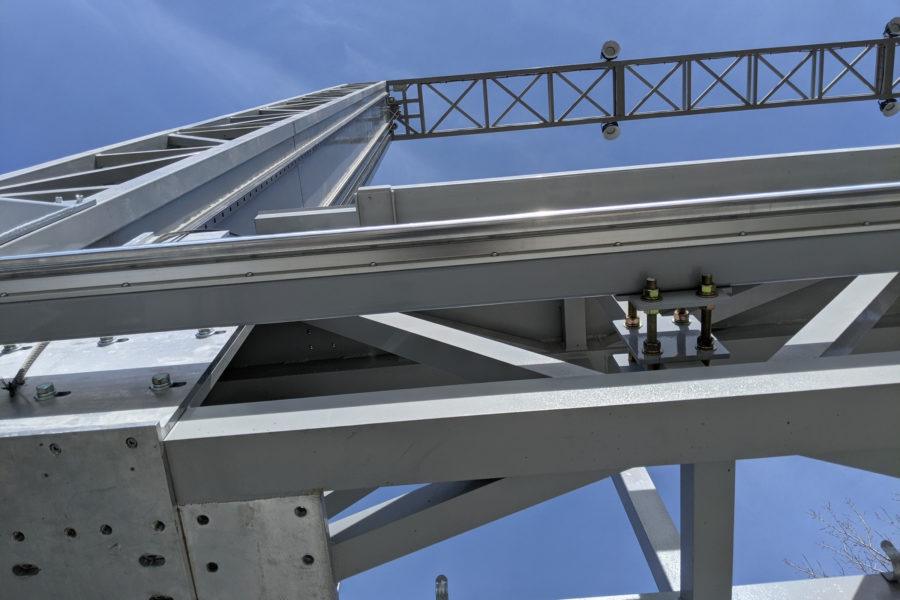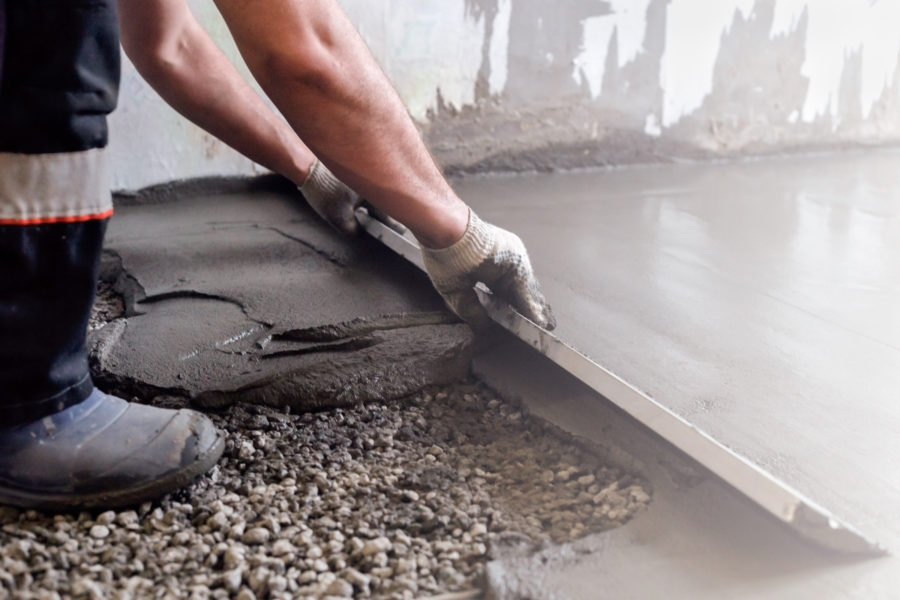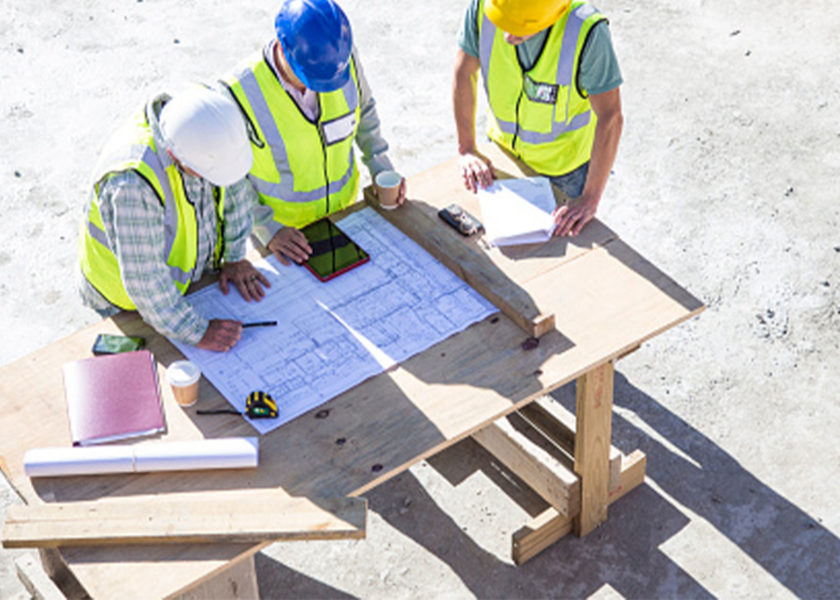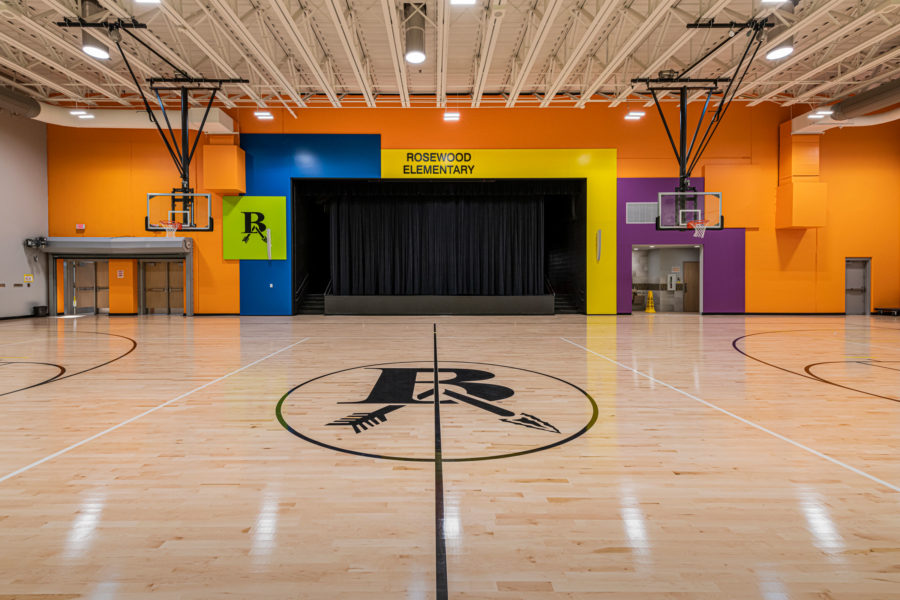Story at a glance:
- The ICC ensures the engineering of safe and sustainable structures.
- The ICC offers 30+ certifications for building officials and code safety professionals.
- ICC members can vote in the ICC Code Development Process.
Building and construction codes are ever-changing, and whether you’re building in California or Illinois there are differences in rules, but resources like the International Code Council (ICC) can help industry professionals navigate these regulations. In a world of codes, some may wonder, what is ICC certification exactly, and what is the ICC?
We explore the inner workings of the ICC, its mission, and just some of the many benefits.
What is the International Code Council (ICC)?

Manufacturing site inspections are part of a successful continuous compliance program. Photo courtesy of ICC-ES
The International Code Council (ICC) is a global, nonprofit organization that develops a single set of national model construction codes known as the I-Codes. I-Codes are a family of 15 coordinated, modern building safety codes that help ensure the engineering of safe, sustainable, affordable, and resilient structures. The ICC provides product evaluation, accreditation, technology, training, and certification to industry professionals worldwide. The ICC’s mission is to ensure safe, affordable, and sustainable communities and buildings.
The ICC was established in 1994, bringing together three organizations that had developed three sets of model codes throughout the US: Building Officials and Code Administrators International, Inc., International Conference of Building Officials, and Southern Building Code Congress International, Inc.
The ICC includes a family of solutions, like ICC Evaluation Service (ICC-ES), S.K. Ghosh Associates, the International Accreditation Service (IAS), General Code, ICC NTA, ICC Community Development Solutions, Alliance for National & Community Resilience (ANCR), and Progressive Engineering Inc.
What is an ICC Certification?

Photo courtesy of ICC-ES, Getty Images
The ICC certifies that building officials—including inspectors and plan reviewers—have taken training classes and passed the ICC’s test in their particular field. The ICC offers 37 certifications for certified code safety professionals, like residential (B1) and commercial (B2) building, electrical, plumbing, and mechanical inspectors. Exams are also offered for electrical, plumbing and mechanical plans examiners, residential fire sprinkler inspectors, permit inspectors, zoning inspectors, energy conservation, green building, as well as coastal and floodplain construction inspectors.
Why Does ICC Certification Matter?

New and innovative approaches to construction include 3D concrete printing, which can be evaluated using ICC-ES AC509. Photo courtesy of Black Buffalo
Getting ICC-certified comes with a plethora of benefits. Certification in your trade can potentially help you increase your salary, provide a network of professionals, as well as provide access to continuing education opportunities. Certification also shows that you value your work and the safety standards set by ICC and its subsidiaries.
Some states also require that building inspectors possess certain ICC certifications. For example, California, Minnesota, and Louisiana all require state certifications for inspectors and examiners. The state exams for California and Minnesota are designed to be substantially equivalent to ICC certifications. This means that if you pass the state exam, you can apply to receive the equivalent ICC certification.
Contractors can also benefit from ICC certification. There are a total of 23 certifications for various contractor and trade professions, including building contractor, residential building contractor, journeyman plumber, master plumber, maintenance electrician,and low-voltage electrician. Contractors must pass a comprehensive written or online exam on the code standards for their trade. Certification is just one part of becoming a licensed contractor or tradesperson. Contractors still need to fill out an application for a license with a state or local licensing agency.
What is ICC-ES?

An evaluation report is issued for building products that show proof of compliance with applicable codes, while a listing report is issued for products evaluated to standards. Photo courtesy of ICC-ES, Getty Images
One subsidiary of the ICC that can provide professionals with a host of resources is the ICC-ES. The ICC-ES is recognized in providing conformity assessment for building and plumbing products worldwide, including the US, Mexico, Canada, Australia, New Zealand, and the MENA region.
The ICC-ES can inform you about products, systems, materials, and methods that are code-compliant. Manufacturers can request a report from ICC-ES that will make it easier to market building-related products, because the ICC-ES provides evaluation and evidence that products meet code requirements. These reports are available for reference by thousands of building departments, as well as other construction industry professionals, for free online.
If you are a specifier, designer, architect, or contractor you can easily find an ICC-ES to support that you are using code-complying materials.
For manufacturers, the accomplishment of product assessment or evaluation reports adds a level of quality and customer assurance in one’s capabilities and products. For authorities having jurisdiction, evaluations completed by independent technical assessment bodies are the best tool available to clear products for installation and use.
ICC-ES evaluation reports are often used as a basis for product approval by local authorities in the US. The product evaluation process starts with an independent, rigorous review of industry standards, product test data, and specifications. Qualifying inspections of product manufacturing quality control are also conducted, and an evaluation report is then issued to the building product manufacturer, the ICC-ES says.
“Product evaluation for construction matters because at the end of the day, human lives are at stake. I say this and I mean it. It may sound as though I’m making it up, but what we do here at ICC-ES saves lives, and I’m passionate about it,” said Shahin Moinian, president of ICC Evaluation Service (ICC-ES), in a previous contribution for gb&d. “Every time I look at an evaluation report, and I see how rigorous the evaluation has been, I realize that this evaluation can save somebody’s life because the structure is not going to collapse. So that’s very important to me. That’s really what motivates me every day.”
The evaluation report authorizes the manufacturer to apply the ICC-ES mark of conformity to their product as proof of code compliance. Throughout the life of an evaluation report, continuous compliance inspections are periodically conducted to ensure that no unauthorized changes have occurred in the manufacturing process, and that the product has not varied from what was originally evaluated. Selection and approval of building products is difficult as is, however, ICC-ES reports can help streamline critical decision-making.
Members of the general public also benefit from the work of ICC-ES as it actively promotes public safety in the built environment. Anyone can use evaluation reports to help in selection of building products for their own home or property.
How Do You Get ICC-Certified?

Photo courtesy of ICC-ES, Getty Images
ICC certification can be obtained by taking a trade-specific exam through the organization. No work experience is required to take the exam and you must be at least 18 years of age. The day after your exam you will receive a pass or fail letter.
ICC certification is valid for three years. Since codes are always in flux, renewing your certification allows you to stay up-to-date. Certification must be renewed before it expires. In order to renew your certification, you must first gain the required amount of Continuing Education Units (CEU) and then pay a renewal fee based on how many certifications you are renewing. CEUs are earned by attending seminars or taking professional development courses and can be accrued within the three-year period.
Once you have passed an ICC exam, a certification number is assigned to you. This means that when someone searches for a certified professional for a given trade on the ICC website, your name comes up.
ICC Membership

Photo courtesy of ICC-ES, Getty Images
The ICC also offers exclusive membership packages that can provide a variety of benefits. Membership tiers include student members, participating members, building safety professional members, corporate members, and governmental members. These tiers range in benefits from subscription to the Building Safety Journal online magazine, exclusive access to the members-only area of the ICC website, and discounts on products and services to the complete collection of digital codes for the year.
Member benefits also include code advice from expert technical staff. Additionally, ICC members vote in the ICC Code Development Process and can post job openings or search for new job opportunities in the career center.
ICC members can also form chapters with even more benefits. Just some of the benefits that chapter members receive are registration to the ICC Annual Conference extended to the president of qualifying chapters each year.
Qualifying chapters may also choose to substitute the annual conference registration for attendance to the Chapter Leadership Academy. All chapters are entitled to receive 20% off ICC member prices on ICC designated products for bulk orders shipped and billed to the chapter. The Chapter Education Benefit is available to qualifying chapters and consists of an education voucher to be used for one complimentary day of training through an ICC preferred provider or one day of training from ICC.
ICC in the Field

Photo courtesy of Solatube International, Inc.
Products and professionals who have been evaluated and certified by the ICC can be found across the built environment. One example is an elementary school in the urban-suburban community of Broken Arrow, Oklahoma.
The school’s gymnasium is a focal point for the community, as it serves as a safe haven during high wind events and acts as a large multi-purpose space for the campus. Although not required by law, the district decided it was important to create a multi-purpose structure built to ICC 500 code.
Solatube International, a manufacturer specializing in tubular daylighting devices (TDDs), provided tubular skylights to the school’s gymnasium. The district was eager to include skylights because of the proven benefits natural light has to offer. Studies by groups like Heschong Mahone and the University of Oregon have shown that broad-spectrum daylight, when incorporated into learning spaces, can help to increase test scores by 20 to 26%, improve cognitive skills, visibility and mood, reduce the number of absentee days, and even reduce microbial communities associated with indoor dust by 50%.
One of the most significant challenges with this project was finding a way to bring daylight to the shelter without the costly additions of penetration protection such as window systems or storm shutters. The experts at Solatube say their TDDs are an affordable daylighting solution that have been able to solve the problem of window-less shelters. The Solatube 750DS-O is the only rooftop daylighting device in the world compliant for use in an ICC 500 storm shelter and FEMA P-361 safe room—even in EF 5 territory. In order to properly daylight the space, the project used six Solatube SolaMaster 750DS-O units.

